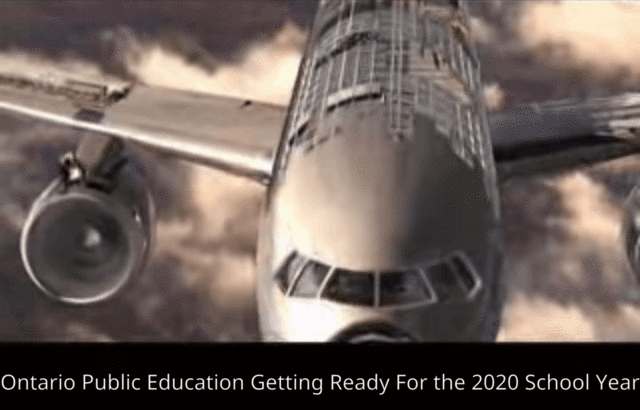Written Feb, 2022:
Horses usually get put down when they break a leg. They get euthanized because a three legged horse can’t stand on its own and ends up developing consequent health problems. Keeping a lame horse alive is simply extending its misery. These days, Dusty World feels like a lame horse. I started this blog in 2010 after having attended my first ECOO conference and found it a valuable way to share my own ABL (always be learning) approach to teaching and learning effectively while navigating an information revolution.
Dancing in the Datasphere: thoughts on digital pedagogy from way back in 2011.
I’m sitting here looking at a dozen posts I haven’t published on Dusty World in the past year because I think there is no point. It has been years since we focused on pedagogical best practices in Ontario education. My reflections on this blog have always been focused on that slippery and often ignored concept. Even at the best of times getting our education system to focus on pedagogical best practices has proven problematic, and we’re very far away from the best of times here in early 2022.
I’ve used pedagogical best practices to direct my teaching throughout my career, even when it made me unpopular with management, my union and even colleagues and students (many are happy to do less – learning is hard work). In my mind, pedagogy means I’m focusing on maximizing student learning to the exclusion of all else. The past two years have made so many educational workers (and students, and parents) disinterested in pedagogy to the point where I may be one of the only people left who gives it any thought. Many weren’t into it in the first place, others have bailed for their own survival, and some have even actively attacked the idea of learning as a focus in schools, usually for their own political ends.
Pedagogy in Ontario public education has been set back decades since 2018. These days we’re reduced to focussing on student wellness (usually while being driven to destroy our own) rather than teaching, but good pedagogy leads to student success which also brings with it meaningful (rather than proscriptive) wellness, though that is much more difficult to do than simply tossing learning out the window in favour of proscriptive wellness. I didn’t became a teacher to provide daycare or be an emotional councillor, I got into teaching to teach. In an attempt to survive this ongoing disaster, Ontario education has given up on teaching and learning and has fallen back to wellness as a last raison d’être.
Pedagogical best practices have always struggled to survive in our educational bureaucracy. I’d honestly hoped that a change in government in Ontario would create efficiencies and opportunities in a system too long under single party control, but the new guys are just as (if not more) duplicitous and manipulative as the old guys, and obviously not focused on pedagogy. This loss of faith in our provincial education system is what had me daydreaming about a student bill of rights for all Canadian students. Unfortunately, Canada’s colonial history tends to systemically abuse disenfranchised people (like students under 18), leaving me worried for the safety and efficacy of learning for our children.
For me, the point of Dusty World is to allow me to transparently reflect on my teaching practice in order to improve it. I have always done this publicly in the hopes that other people might find it useful, but the unpublished posts I’m looking at feel more like hopelessness than they do constructive reflective practice. Every time I post something I get blowback from exhausted people who are trying to make nonsensical system-think work in practice. The best thing I seem able to do as one of the few people left in the system actually interested in effective teaching and learning is to not publish reflections on it, which breaks my heart. We seem to have lost the plot entirely.
***
Systemic Pedagogical Failures Continue…
Not posting anything doesn’t mean there are still major problems in our system. So far this year I’ve had graduates tell me they are in real trouble in post-secondary maths classes. How an A+ high school student can suddenly find themselves failing in post secondary raises very concerning questions about how we are teaching and learning. Other students are able to use their maths like a toolbox to solve problems, but our grads struggle with rote learning that renders them ineffective. My son had a senior maths class last year where the entire class failed unit 5. The teacher said it’s ok, everyone fails unit 5. If we were focusing on pedagogy we’d be trying to solve this.
This past year I had prominent STEM educators tell me that only academic/white collar courses matter. When I suggested we create content for non-academic technology courses I was told that they don’t matter because barely any schools teach them. This STEM is more just S & M thinking is ongoing and obviously inequitable. This is one of those things I’d hoped a change in government might address, but blue collar subjects (and students) are still an afterthought in our degree fixated system. Were we considering pedagogy on a systemic level, this kind of thing wouldn’t come up in conversation.
I’m currently teaching over 70 students in grades 10-12 in computer technology and engineering, four of them are girls and there are no girls in my senior class. Sexism and genderism is still a major problem in our system. My partner had one of our local students in elearning last quadmester and she told the story of how, when she expressed concern about her course selections she was told, “you’re so pretty, you don’t need to worry about that kind of thing.” I want to have trouble believing that this was said, but then I look at how genderized our course selections continue to be and wonder how this kind of systemic genderism can happen.
I’m one of the few that has tried to keep extracurriculars alive in our aimless wander through COVID and have had many difficult experiences and observations about how student performance is affected by long term trauma, but that too can’t be publicly reflected on because it doesn’t matter anymore, and doing so only seems to aggravate the situation. Having an opportunity to reflect, share and talk to other professional educators about my practice has been a valuable ‘breathing’ process for my teaching, but like trying to teach through a mask every day, I’m left gasping for breath.
My current situation (massive classes while trying to teach hands-on engineering skills without the space needed to do it) has always been an issue where I teach, but nothing changes because I’m expected to hurt myself making it work every year, at least until there is an injury then it’ll be my fault. I recently had a student in my post-secondary bound senior computer engineering class (capped at 31, like an advanced calculus class) who is credit poor, essential level/DD and has a history of violence. When I asked guidance why this student was directed into our class I was told that he had selected my course, which begs the question: who is being guided? We have resources set aside for students like this, but when we don’t guide them into those programs we reduce the efficacy of everyone else’s learning.
Speaking as a parent as well as a teacher, I’d like our education system to focus on teaching and learning best practices, which should include gender unprejudiced and level appropriate guidance. I suspect the dearth of maths skills in our grads is also a result of the ‘pick-what-you-like’ (unless you’re female) approach. It’s hard to cover pathway appropriate curriculum when a significant portion of every class has neither the inclination nor background to engage with it. If pedagogy mattered, we’d be resolving these problems instead of ignoring them.
The world has many problems and I feel that pedagogically focused public education is the answer to many of them, but because of politics and circumstance, schools in Ontario aren’t focused on being schools anymore.
Meanwhile, the digital information revolution is, if anything, accelerating, and we’ve thrown hundreds of thousands of staff and students into the digital divide in an attempt to weather the pandemic, all with no time or training to tackle any of it with pedagogy in mind. I’m rejigging my entire curriculum again for the 3rd major change in scheduling in the past 18 months (with no time given). It’s like trying to build a plane while it’s in the air… again.
Inconsistencies have poked so many holes in the fiction that is our public education system that many people are now questioning it in ways they wouldn’t have before. The one-two punch of a vindictive, populist government and this never-ending pandemic has left our schools angry and confused. That loss of faith is hard to recover from. Trying to honestly reflect on pedagogical best practices in this void only seems to aggravate the situation. It might be time to send Dusty World on sabbatical for a while and focus on something where I can give it 100% without other people constantly telling me to do less. I didn’t get into teaching to do it at low intensity, the kids deserve more, but that’s where we’re at.
from Blogger https://ift.tt/eSZlAPq
via IFTTT




